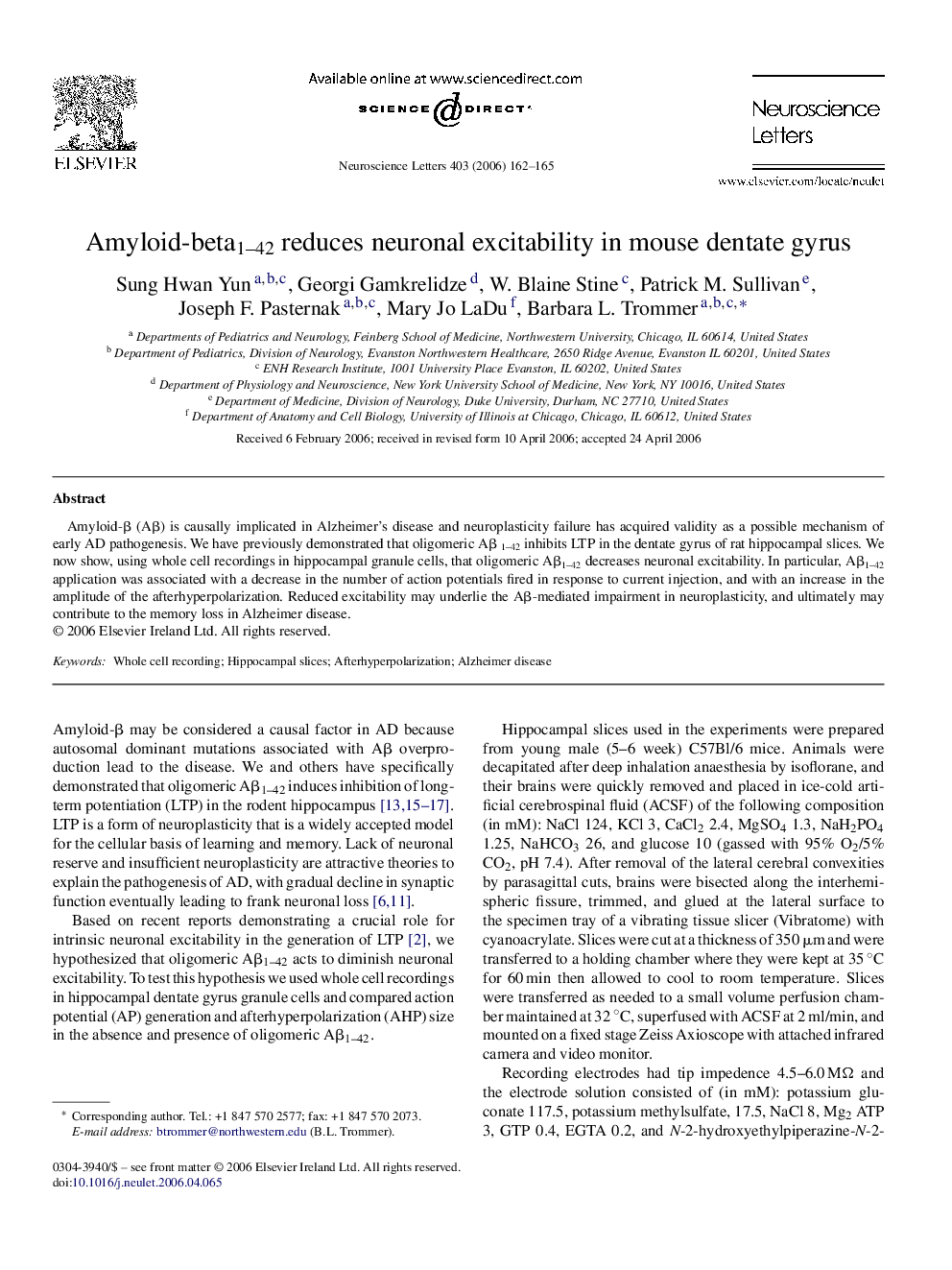| Article ID | Journal | Published Year | Pages | File Type |
|---|---|---|---|---|
| 4350420 | Neuroscience Letters | 2006 | 4 Pages |
Abstract
Amyloid-β (Aβ) is causally implicated in Alzheimer's disease and neuroplasticity failure has acquired validity as a possible mechanism of early AD pathogenesis. We have previously demonstrated that oligomeric Aβ 1-42 inhibits LTP in the dentate gyrus of rat hippocampal slices. We now show, using whole cell recordings in hippocampal granule cells, that oligomeric Aβ1-42 decreases neuronal excitability. In particular, Aβ1-42 application was associated with a decrease in the number of action potentials fired in response to current injection, and with an increase in the amplitude of the afterhyperpolarization. Reduced excitability may underlie the Aβ-mediated impairment in neuroplasticity, and ultimately may contribute to the memory loss in Alzheimer disease.
Related Topics
Life Sciences
Neuroscience
Neuroscience (General)
Authors
Sung Hwan Yun, Georgi Gamkrelidze, W. Blaine Stine, Patrick M. Sullivan, Joseph F. Pasternak, Mary Jo LaDu, Barbara L. Trommer,
